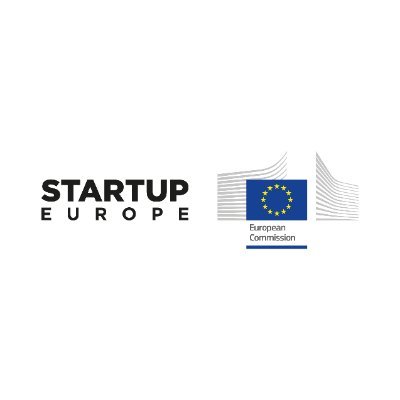Europe is consolidating itself as a global technological power, according to the annual report State of European Tech 2021 from Atomic. According to this report, which is already a benchmark in the market, Europe is now the second region worldwide when it comes to early-stage investment in startups, with a total of 3.800 billion dollars compared to the US. $4.100 billion. Europe now has 321 unicorns, up from 223 in 2020.
The report estimates that 3 trillion of value has been unlocked, but Europe has an opportunity worth 23 trillion pending to emerge. The 100 billion in annual funds have been crossed for the first time. There is a financing round of 100 million every 14 hours in Europe. And 100 new startups were reached in 2021 (323 in total, more than China). Europe has now reached a value of 250.000 million dollars.
Furthermore, European venture capitalists are outperforming their US counterparts. The Cambridge Associates index for European venture capital outperforms the US equivalent at 1, 3, 5, 10, 15 and 20 year horizons. On the other hand, Europe is about to get the first 100 billion VC-backed tech company (Adyen reached 99 billion in August 2021).
Early-stage investment levels are now on par with US levels, with European unicorns on the rise, growing faster than pre-pandemic and delivering a $1tn valuation increase in the first 8 months of 2021 .
Trends
There are five key trends that the startup market and investment are highlighting:
- Europe is establishing itself as a global technology player
- The results exceed the projections in the public and private markets.
- European fintech is skyrocketing; 'Planet Positive' startups gain traction
- Access to finance and talent are key challenges for European tech founders, but a virtuous cycle of talent is underway.
Europe is establishing itself as a global technology player
European technology is projected to cross the milestone of $100 billion of capital invested in a single year, close to 3 times the level in 2020.
The total number of technology companies that have scaled to more than a billion dollars in Europe has increased from 223 last year to 321.
Large rounds ($250M+) are now the norm in Europe: they grew 10x compared to last year, and now account for 40% of total capital invested in the region.
Europe has its strongest pipeline of early-stage startups and the region accounts for 33% of all capital invested globally in rounds up to $5 million. This makes Europe the second largest region in the world for early-stage investment, totaling $3.800 billion versus the US at $4.100 billion.
When looking at the number of unicorns per capita, Cambridge emerges as the unicorn capital of Europe.
The results exceed the projections in the public and private markets.
Over the last 12 months, Europe has added more than $750 billion of public technology market capitalization value and currently has more than $2 trillion. (Source: CapIQ)
Europe continues to produce more tech IPOs than the US with 122 IPOs vs. 89 for the US in 2021, however more needs to be done to address impediments to large-cap IPOs taking place in Europe . (Source: CapIQ)
Blockbuster ($10B+) IPOs are becoming the norm. The biggest IPO of 2021 is Romanian company UiPath, which debuted at around $35.6 billion after opening day earnings. Other large-scale public listings included Auto1, Wise and Deliveroo, which traded above $10 billion on their first day. (Source: Atomico)
15 European technology companies have gone public through SPAC in 2021 for a combined EV of $62 billion. 14 of the 15 companies are now listed on US stock exchanges. 13 of the 15 were VC-backed.
They cover key technology areas such as quantum computing, electric mobility, semiconductors, fintech, and digital health. 9 out of 15 UK companies – all went public in the US on US stock exchanges (Source: CapitalIQ)
The aggregate value of European tech company exits through mergers and acquisitions and public listings is already well over $180.000 billion and has surpassed 2020 levels, the highest in five years. 2021 has been a record year so far for deals, with a total of 47 $1B+ PE-backed exits booked, almost 4x more than in all of 2020. (Source: Dealroom)
There are currently 26 European VC-backed tech companies with decacorn status compared to 12 in 2020. Adyen is now on track to be the first European tech company founded after 2000 to hit the $100 billion mark, with its valuation reaching a 2021 YTD high of $99B in November 2021. (Source: Dealroom)
European fintech is skyrocketing; 'Planet Positive' startups gain traction
In absolute terms, fintech had the most significant increase (+132%) with investments growing from $9,4 billion in 2020 to $21,7 billion in the first nine months of 2021, followed by enterprise software at +$ 5,9 billion (89% increase) and transportation at +$4.9B (95% increase). (Source: Dealroom)
1 in 5 European unicorns is a fintech company (and that number rises to 1 in 3 for private unicorns). This also includes 4 of the 10 most valuable technology companies in Europe. (Source: Atomico)
The count of crypto and blockchain deals has increased fivefold in Europe in the last 5 years, but it is behind the US. Still, Europe already has 8 crypto unicorns. (Source: Pitchbook, Atomico)
Over the last five years, more than $34.000 billion has been invested in targeted technology companies in Europe, representing 17% of all funding. Purpose-driven companies are defined as companies that build a sustainable future for all by addressing one or more SDGs. (Source: Dealroom)
Planet Positive investments, defined as companies working to make sustainable use of the planet's resources, captured 11% of overall total funding in 2021, with Clean Energy and Climate technology startups capturing the largest share. the funds with 24% and 19%, respectively, of all capital. invested in targeted technology companies in 2017-2021 YTD. (Source: Dealroom)
Funding and talent are key challenges for founders, but new talent is emerging.
In the survey of more than 45.000 profiles of founders and senior leaders working in nearly 5.000 European technology companies, nearly 40% are multigenerational leaders who have worked for both more established technology companies and younger companies.
Close to 1 in 5 have gained experience in companies worth more than a billion dollars, and 16% have moved from another country at some point in their career.
Although the depth of talent continues to improve at all stages of a company's journey, it is much more difficult for founders at the seed and A league hire talent. 58% of founders in seed and 64% in series A say it's harder to acquire talent compared to 12 months ago.
In the same period of one year, it has been seen that for women and ethnic minorities they transmit that working for a European technology company is more attractive than men or white people, with 73% of women and 75% of people not Caucasian.
Structural challenges
But if Europe wants to develop its long-term ambitions, it has to address the structural problems that are still holding it back.
Europe needs to encourage diversity
Women and ethnic minorities still find it more difficult to obtain capital. Overall, 29% of respondents indicate that being from an underrepresented background negatively affected their ability to raise capital. However, this percentage rises to 49% for women (Source: European State of Technology Survey 2021).
Based on Extend Ventures' analysis of a sample of 4.684 technology companies based in Europe that they have raised Over $2M of the funding, alone, has been by women (Source: Extend Ventures).
Despite evidence showing that mixed and diverse teams perform better, they only capture 9% of capital raised (source: Dealroom).
Despite representing close to 30% of the European population, Central and Eastern Europe account for the lowest capital inflow into its risk ecosystem among all regions (Source: Invest Europe).
The facilities for investment must be intensified
Pension funds (3Q of total assets) continue to be deficient in VC allocations (less than 0.03%). Boosting that allocation to just 1% would be a sensible change. (Source: InvestEurope)
Technology is thriving in Europe, but so far it has been despite regulatory and political conditions. However, a change in policy can increase momentum and provide a competitive advantage on the world stage.
According to European investors, founders and policy experts, the focus should be on fixing the basics: reducing talent friction, unlocking access to finance for both founders and investors, and harmonizing regulations across countries (Source: Survey on the state of European technology 2021)
There is optimism for better collaboration between startups and regulators. In all countries surveyed, a higher percentage of respondents say that the European regulatory environment is improving (Source: European State of Technology Survey 2021).
Access to capital
All the holders 100 of the billion collected, it has still been difficult for them to collect. Access to capital at an early stage remains a challenge. Although the capital raised has tripled, a significant proportion of founders say that it is more difficult to raise money during the last year. The top quartile of European countries collected 496,7 per capita, while the second collected $152,1, the third collected $9,9, and the bottom collected $1,0.
The sensitive North-South divide
• The five largest hubs by total invested capital (London, Berlin, Stockholm, Munich and Paris) have companies that together captured 54% of total investment in Europe in 2021.
• Rising levels of investment in more established and growth-stage companies have widened the funding gap in favor of Europe's more developed technology ecosystems.
• Although the level of investment per capita in the countries of the top and second quartiles (Northern and Western Europe), this increased substantially in 2021 compared to previous years. This has not been reflected in investment patterns in the bottom quartile countries (Southern and Eastern Europe). How does Europe unleash the potential of these southern axes?
Investment must grow (only 3 billion is allocated to technology) being an opportunity.
Hiring challenges have a limiting factor. For example, they are less likely to find new talent than the rest of Europe.





